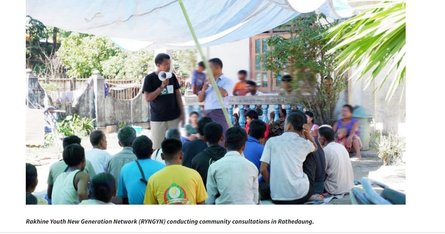
Myanmar has been called an ‘innovation lab for localisation’.+ Local communities, especially diverse groups of local women and their organisations, have historically been the first responders to disaster and conflict. The valuable skills possessed by these groups, such as their strong understanding of the local context and the needs and realities of the community at large, enable them to reach those most in need. Despite this, their active role as agents of change within humanitarian responses is not always recognised. Increasing humanitarian access restrictions in Myanmar have led to the country becoming seen as a testing ground for locally led humanitarian action, which risks ignoring the rich, complex and long-existing humanitarianism and local activities already there. The Covid-19 pandemic has heightened these challenges by restricting humanitarian access more than ever. International actors are having to revise their approaches to local partnerships accordingly, and still struggle to reach frontline responders.